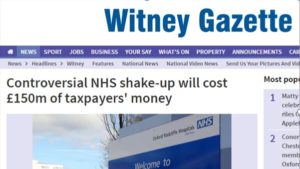News & Insights
The influence of journalists in public consultations
Late last week I was listening to an excellent Radio 4 show on the Morality of Fake News featuring guests including editors and journalists of different media outlets discussing the current state of journalism. One of its shocking conclusions was that journalism had abandoned the notion of objectivity many years ago. People nowadays are sharing headlines without having read the complete story when it confirms their preconceived views. One of the guests said that the public discourse belongs to “every man” and not to journalists anymore.
Last week, Donald Trump, in a speech, referred to a terrorist incident that took place in Sweden the day before. It appeared to be a non-existent terror attack but as we soon discovered, nothing significant happened. It is ironic that Trump claims to be leading the campaign against fake news when many would argue he is an offender. Fake news is not limited to one side of the political spectrum. All are just as culpable to it and pose a real threat to Government-Citizen relationship.
The power journalists have in shaping a public debate is enormous and occurs at all levels. At a national level, there is hardly any avoiding it as it dominates the news for days. On a local level, journalists are often seem to exaggerate the local NHS’ plans to reconfigure their services. Is this to boost reader numbers or is there another agenda? If they know that a potential library closure is proving to be quite contentious, they cover the story vigorously. We’ve all seen the pictures of mothers holding their infants in their home, saying to a local journalist that a threatened hospital saved her baby’s life. How could you possibly support those plans after reading that? Concerned readers mobilise their resources and turn from participant to campaigner, attracting even more (media) attention to the story.
Some journalists shape or distort the local debate and hardly contribute to a successful consultation They’re often obstructing it – exaggerating small hiccups from consultors, writing about an angry crowd at a public meeting, often quoting their local MP who may have a political stake in objecting to any NHS reconfigurations. To appeal to a larger audience journalists focus more on the concerns of a few residents/patients and less on the wider community or the actual necessity of restructuring services, which the majority of NHS bodies and Local Authorities are forced to do.
We here at the Institute often hear from our Members that an article was factually wrong and that the journalist only contacted them 5 minutes before the deadline (or not even at all!). From then on, consultors are no longer in control of their consultation and have to do more with less resources. In an earlier post, I talked about the role of Social Media in public consultations and that it is acceptable for the consultor to correct misinformation or factual inaccuracies rather than to allow misleading posts to gain popularity. News distribution is now being done on Social Media and for an article to stand out, it needs to be snappier, juicier, and catchier. Often this means that the facts are of less importance but to steer your consultation back on the right track, you must stand up for the facts! If you don’t do it, no one will.
Join us on 7 June in Birmingham for our Conference on Public Engagement in the Post-Truth Age where we will explore the implications of fake news and offer practical solutions for consultation and engagement professionals, policy-makers and managers of public services across the UK.





